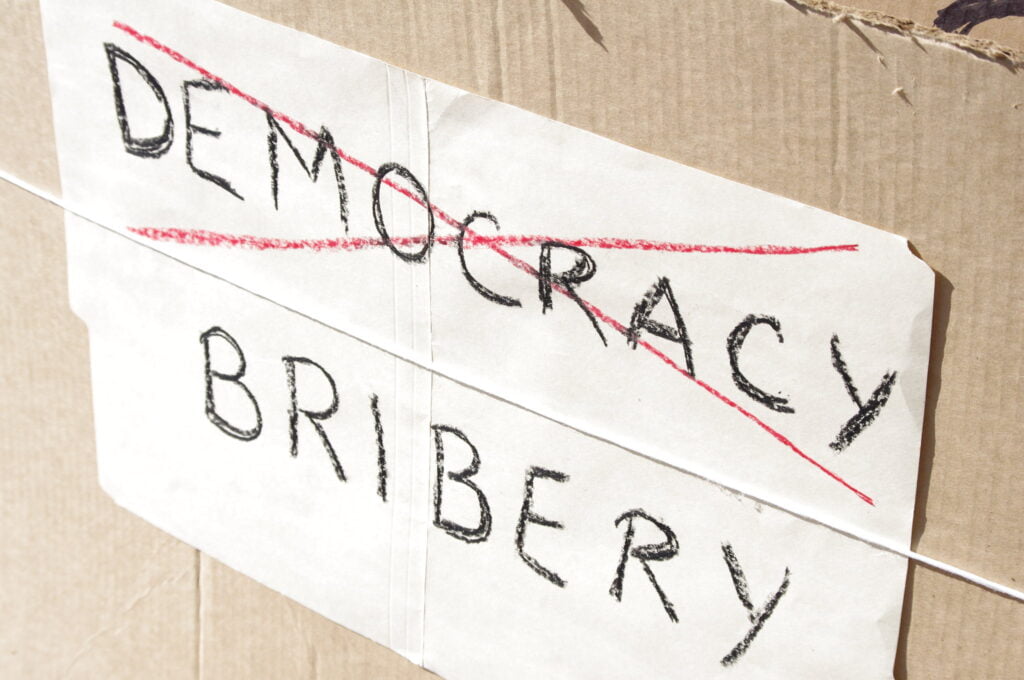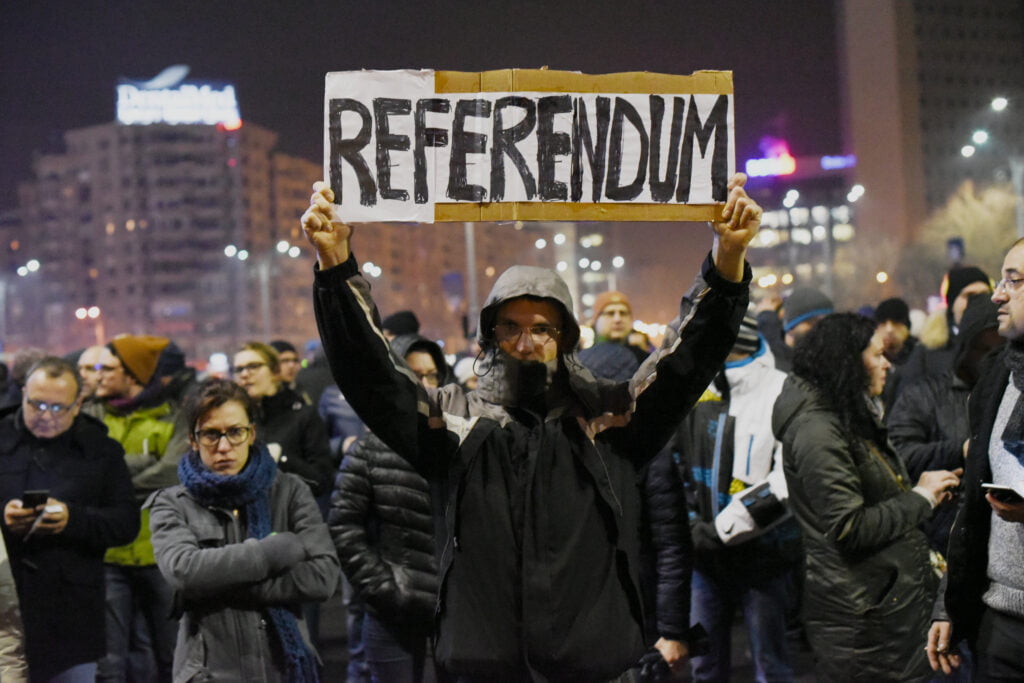Fake behaviour is all around and can have a domino effect which leads to corruption.
 Fake behaviour has tendency to corrupt : “End corruption” by Morten Just is available at https://bit.ly/3Vocu5d CC BY 2.0
Fake behaviour has tendency to corrupt : “End corruption” by Morten Just is available at https://bit.ly/3Vocu5d CC BY 2.0
Fake behaviour is all around and can have a domino effect which leads to corruption.
Fakeness is everywhere. If you search for “songs about fakeness” on Google there are about 380 million matches. It would seem songwriters from all corners of the globe have raised concerns about counterfeit or fake culture for years.
It’s not only songs. Fake news remains rife. Social media has countless examples of manipulated photographs or videos. We cannot escape it. But fakeness isn’t always so obvious. It’s become more difficult to detect. It’s even ‘celebrated’ with AI-based deepfake technology.
All this fakeness cannot be good for us. Indeed, one recent study found counterfeit behaviour can impact a person’s tendency for corruption. The study demonstrated the usefulness of compiling a corruption psychology.
Corrupt tendencies can be predicted by moral disengagement and moral disengagement is predicted by fakeness. This is a gradual process as a consequence of daily behaviour, particularly those instances which are counterfeit in nature. This includes ‘normal’ daily behaviour such as fake listening and religious hypocrisy. In a society dominated by ‘speed’, ‘hustle’ and ‘multi-tasking’, people are still eager to portray themselves as ‘good listeners’ while politicians and celebrities wish to appear devout in an effort to win over the public.
The problem is, this fakeness eventually damages trust. A fake listener is merely aiming to benefit from the impression of appearing attentive while the falsely devout may feel morally superior but are actually corrupting the very values they supposedly espouse. For example, some people cover corruption with religious terms such as infaq or charity (eg. corruption in higher and elementary education)
Then there is the cultural argument to justify corruption by giving gifts. There is a popular argument which suggests regulations to prevent corruption have ignored Indonesia’s traditional values, such as gift-giving as a form of appreciation and gratitude.
But the act of gift-giving should never involve the use of public resources. Nor should it trade trust in the process (because gift-giving is merely a signal of intent to fortify social relationships). And it shouldn’t influence political performance, business professionalism, and public policy.True gift-giving is an act of self-sacrifice whereas corrupt gift-giving is about taking advantage.
There is a common impression that bribery is victimless and harmless compared to grand corruption and is therefore more ‘legitimate’. But simplifying the complexities of corruption with euphemisms or moral justification are aspects of moral disengagement. The idea that corruption is inseparable from certain cultural values — hence it must not be policed — is an abandonment of responsibility to prevent and eradicate corruption. People who find it difficult to grasp the destructive essence of corruption will likely be more tolerant of, or even justify corrupt behaviour.
There is always an element of fakeness and its harmful consequences in social interactions. In nations such as India and Indonesia which are considered more forgiving of corruption, tolerance will make it more difficult to eliminate the problem.
Society could benefit if we recognised and rejected all institutionalised forms of fakeness. This is important because institutionalised corruption which is assumed as ‘customary and imperative’ for development actually ignores the unfairness it creates. The more sophisticated forms of corruption are a process of dehumanisation — an aspect of moral disengagement — despite seeming to produce a greater good as measured by development.
How we quantify corruption so far may be deceptive, concealing the reality of corruption that actually is far more complex and goes deeper. As a result, it does not drive the radical changes needed to prevent and tackle corruption. By being better at identifying fake behaviours, we may tackle all forms of corruption. Maybe, soon enough, our pop songs will be relating how capable we are of recognising and dealing with fakeness.
Juneman Abraham is the Leader of Consumer Behaviour and Digital Ethics (CBDE) Research Interest Group and Associate Professor of Social Psychology at the Faculty of Humanities, BINUS University, as well as Executive Committee Member of the Indonesian Psychological Association (HIMPSI). He provides anti-corruption education and consultancy both theoretically and practically. He declares he has no conflict of interest and receives no specific funding.
Twitter: @keincaled
Originally published under Creative Commons by 360info™.














